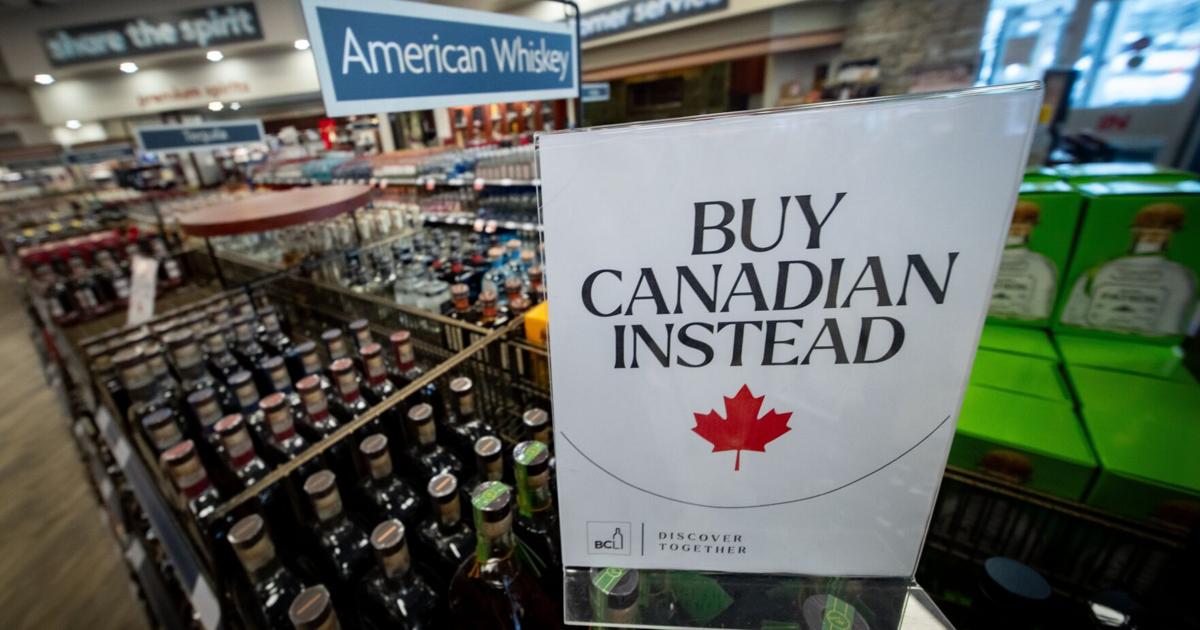Some Canadians have said they won’t be making trips south of the border anytime soon, but for those who are, Global Affairs Canada has updated its advisory for those travelling to the U.S., urging Canadians to expect scrutiny from border guards.
Ravi Jain, an immigration lawyer in Toronto, has said he has been calling for Ottawa to have this updated messaging.
“Some people are saying it’s really overblown, and it’s being a little bit dramatic, calling for this, but I don’t think so,” said Jain. “People are pretty anxious about this. They see the United States as going to another province, they don’t really think too much about it. The idea that Canadians could face this extra scrutiny just because of where they’re born, even if they’re here and left after six months, they have to be aware that this is an issue.”
The extra scrutiny could include a search of your electronic devices, which U.S. border agents are allowed to do. This rule though has always been in place.
“They should be careful of what their social media says, if it’s critical of the administration, they need to think about maybe not having that so accessible,” said Jain. “Maybe turn off the public settings if they have sensitive information, you can upload it to the cloud. Of course, there are things like burner phones. But if they ask for your password, then the border guards certainly think that they have the right to search everything on your devices. You can so ‘No I’m not giving you my password,’ but then they can take your device.”
This enforcement, according to American officials, appears to be rare. According to the U.S. Customs and Border Protection Agency, less than 0.1 per cent of travelers have their devices searched.
“The number of controls is probably going to rise a little bit,” said Frédéric Dimanche, a professor at Toronto Metropolitan University and director of the Ted Rogers School of Hospitality and Tourism Management.
“There have been in the media, in the past two or three weeks, a number of significant examples of people who have been detained at the border or rejected at the border. All of this is raising fears or at least concerns. But nonetheless, let’s remember that there are so many people crossing the border every day that not everybody will be asked to open their phones and open the computers.”
The latest advisory also urges travelers to carry proof of status while in the U.S.
“The idea that you have to carry your papers, it’s like a cold war thing, but yea, now Canadians should be carrying around their documents just to be extra safe,” said Jain.
“When we’re crossing a border and going to a foreign country, Canadian rights don’t apply anymore,” added Dimanche. “So, remember that going abroad is a privilege. It’s not a right.”
If citizens don’t meet entry – exit requirements to the U.S., they could be detained, while awaiting deportation. In order to avoid any issues, Jain suggested that citizens go through pre-flight inspection.
“That’s when you clear U.S. immigration, on Canadian soil in an airport that has pre-flight inspection. If you’re waiting to get questioned in the United States, then you’re on U.S. soil, and that’s a whole different world.”
If you can avoid travelling south of the border altogether, Jain suggested that is an option too.
“Don’t go if you don’t have to. I mean all of Canadians for patriotic reasons are choosing not to go. But if you have a conference or a business meeting, I think generally speaking, if you’re not born in a certain country where there’s concerns about military service, I think you should generally be okay. I’m not trying to be an alarmist here, but I do think if you do have a different birthplace that maybe of concern, you should be aware of that.”
Canada’s travel advisory for the U.S. remains at the lowest risk level but there are suggestions floating around that Ottawa should raise it.
“I think we have to be very careful with those kinds of measures, I would not like to see the Canadian government take it a step beyond that,” said Dimanche. “It’s the government’s role to warn us about crossing the border, we have to pay attention to this. We have to be well-informed. I think at the minimum, the government is telling us be informed about the changes that are going on in the United States.”
“I don’t think we need to go overboard either and say the U.S. is a high-risk country,” said Jain. “I don’t think we have to go quite that far.”
Last month, Ottawa also informed Canadians and foreign nationals planning to stay more than 30 days that they needed to register with U.S. and NOT doing so could result in “penalties, fines and misdemeanour prosecution.
That measure goes into effect on April 11.
·



